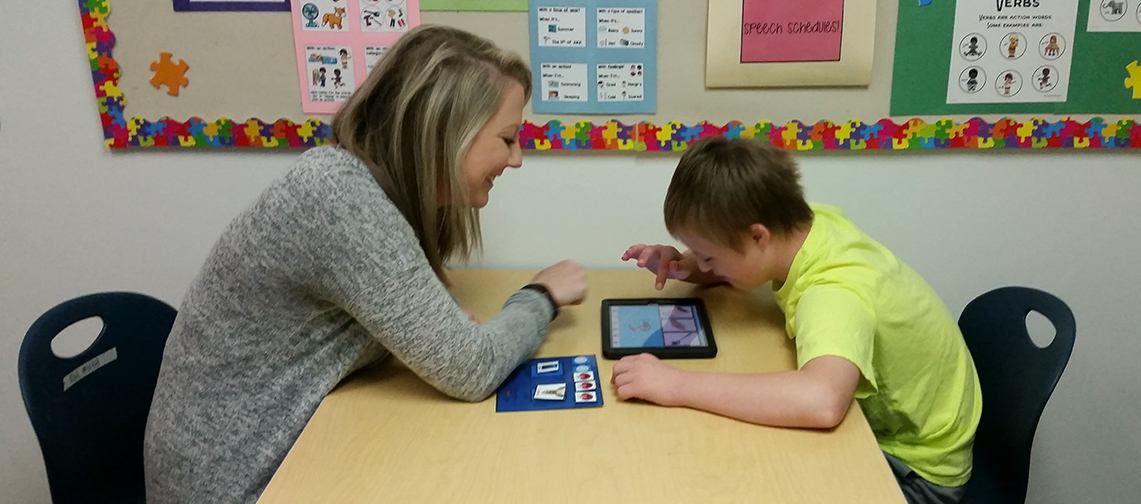Speech & Language Therapy

Monarch School’s Speech and Language Therapy Department is led by a Licensed Clinical Speech Language Pathologist Director, and it consists of 22 Speech Language Pathologists (SLP), each of whom either holds the American Speech Hearing Association Certificate of Clinical Competence, or is completing his/her Clinical Fellowship Year with intensive on-site supervision. Each SLP has a limited caseload, enabling him/her to provide high quality, intensive and comprehensive speech therapy to students to enhance their receptive and expressive communication abilities.
The Speech Therapy models implemented at Monarch are individualized based on the unique needs of each student. Models include 1:1 individual therapy, small group therapy, social skills training groups, consultative support in the classrooms, and therapeutic support during art, music, gross motor, occupational therapy, lunch, recess, and field trips. SLPs often work with older students in the community at job sites, where they practice generalizing their communication skills to the natural environment.
Students at Monarch receive intensive speech therapy services. SLPs work closely with Intervention Specialists, Associate Teachers, Occupational Therapists, Music, Art & Recreational Therapists, and Behavior Specialists to oversee students’ daily programming and implement communication strategies throughout the school day. Upon intake, students are given a variety of assessments in the area of speech and language to determine strengths and weaknesses. Treatment plans are then developed and individualized to meet each student’s needs. Routine evaluations are conducted throughout the school year to reconfirm the best approaches and re-establish IEP goals for students.
In an effort to teach difficult language concepts in captivating and meaningful ways, Monarch SLPs use a variety of technology including augmentative communication devices (e.g., Apple iPads, Proloquo2Go, Touch Chat, Nova Chat), VizZle™ (web-based visual learning software), TLC software (Teaching Language Concepts developed by Dr. Howard Shane), SmartBoards, mobile devices/tablets, and video modeling.
To meet the needs of our non- and/or limited-speaking students who might benefit from Augmentative and Alternative Communication (AAC) devices, Monarch has a dedicated Assistive Technology Specialist. This SLP conducts AAC evaluations, determines which devices best meet students’ needs, programs the devices, and works with students, staff and families to implement the devices throughout the school day and at home.
At Monarch, SLPs strive to provide all students with a “voice” regardless of their level of communication impairment. Visual supports are used pervasively to teach instruction, organization and expression. To help students express themselves more completely, SLPs teach seven facets of functional communication. The first two functions focus on language that supports a student’s need for behavioral organization and control. The remaining five functions enable a student to communicate and understand when participating in everyday activities. The seven functions of communication include:
- Protesting and Refusal
- Organization and Transitions
- Requests
- Directives
- Comments
- Questions
- Social pragmatics